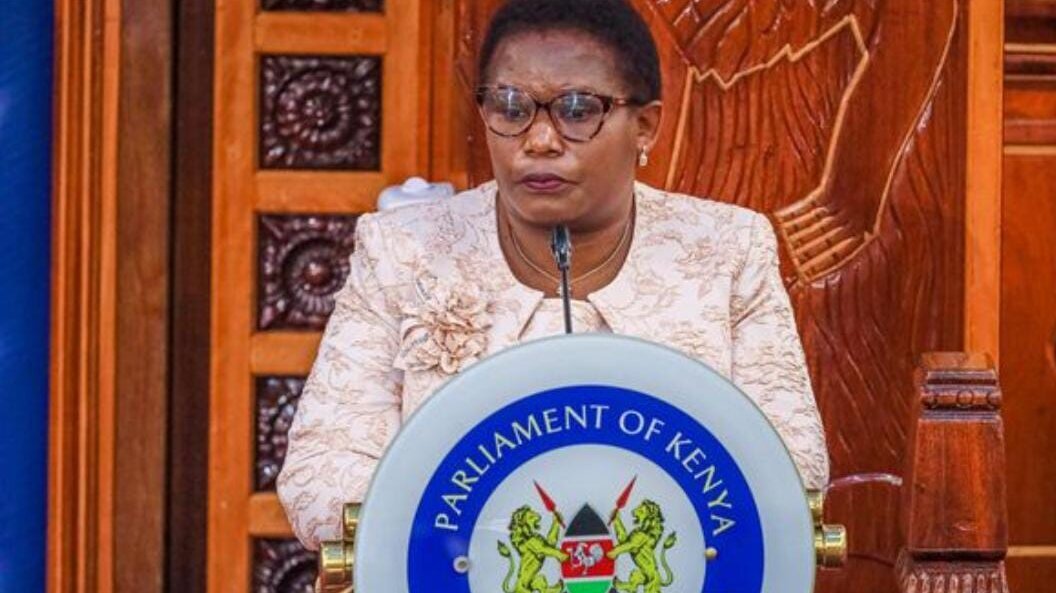Mwangaza gets reprieve as court temporarily blocks impeachment stamp

Meru Governor Kawira Mwangaza. Photo/Senate Speaker Amason Kingi via X
In a bold legal maneuver, Meru Governor Kawira Mwangaza has moved to the High Court in Nairobi to challenge her impeachment by the Senate.
The governor, whose political career has been marred by controversy since her election, finds herself in a fierce legal battle after the Senate upheld her removal from office.
On Wednesday, Justice Bahati Mwamuye of the High Court issued a conservatory order staying the implementation of the Senate’s resolution, effectively halting the impeachment process until the matter is fully heard and determined.
Governor Kawira Mwangaza’s impeachment by the Meru County Assembly and subsequent affirmation by the Senate, sparked widespread debate across the country, with opinions sharply divided on the merits of her removal from office.
The County Assembly had cited gross misconduct and abuse of office among the charges leading to the impeachment, which was endorsed by the Senate following a tense session.
Refusing to go down without a fight, Ms Mwangaza, through her legal team, swiftly filed a petition in the court challenging the Senate’s decision.
In her application, she argued that the Senate’s process was flawed and that she had been denied a fair hearing.
Her lawyers contended that the impeachment proceedings were marred by bias and procedural irregularities, which rendered the entire process unconstitutional.
The Governor’s petition hinges on several key legal arguments.
Firstly, her team argues that the Senate did not afford her a fair opportunity to present her defence, which is a fundamental right under the Kenyan Constitution.
They claim that the Senate’s Committee on Devolution and Intergovernmental Relations, which oversaw the impeachment, acted with preconceived bias and failed to consider critical evidence that would have exonerated her.
Furthermore, Ms Mwangaza’s lawyers argue that the County Assembly, which initiated the impeachment, did not adhere to the legal threshold required for such a drastic action.
According to her legal minds, the charges levelled against the governor did not meet the constitutional standard of gross misconduct or abuse of office as stipulated in the Constitution.
They also argue that the impeachment process was driven by political motivations rather than legitimate concerns over governance.
The High Court, in response to Mwangaza’s petition, granted a conservatory order suspending the Senate’s resolution to remove her from office.
Justice Mwamuye, who issued the order, noted the gravity of the matter and the potential constitutional crisis it could trigger if not carefully adjudicated.
The order restrained the Senate and Speaker Amason Kingi from gazetting the impeachment until the case is fully resolved in court, slating the case for mentioning on September 17, 2024.
This development has reignited the political drama surrounding Ms Mwangaza’s tenure as governor.
Her supporters have welcomed the court’s decision, viewing it as a victory for justice and the rule of law.
They argue that their leader has been a victim of political witch-hunts by powerful interests within Meru County who are determined to oust her from power.
On the other hand, critics maintain that her removal was justified, citing her alleged mismanagement of county affairs and a breakdown in the relationship between her administration and the County Assembly. They argue that the Senate’s decision to uphold the impeachment was based on substantive evidence and that the court should respect the democratic process.
As the legal battle unfolds, the case is expected to have far-reaching implications not only for her political star, but also for the broader understanding of the limits of gubernatorial power and the role of the Senate in safeguarding devolution in Kenya.
The High Court’s ruling will be closely watched as it may set a precedent for how similar cases are handled in the future.
Governor Mwangaza, meanwhile, remains defiant, insisting that she has been wrongfully impeached and that she will continue to fight to restore her mandate and to diligently serve the great people of Meru.
The coming weeks will be crucial as the court delves into the constitutional and legal issues raised by her petition, ultimately determining whether she will retain her seat or be permanently removed from office.
However, the court orders, also prevent the deputy governor from assuming position as the governor until the case is heard and ruled.

Be the First to Comment